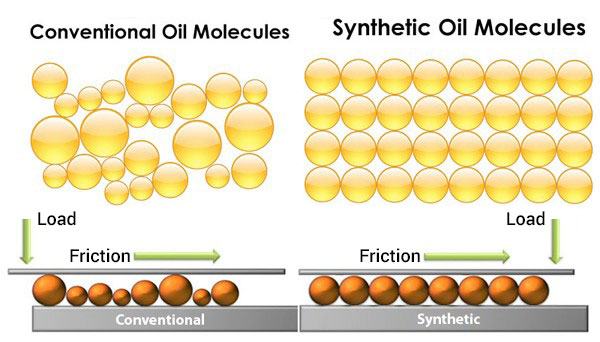
 One way to maintain your vehicle’s engine health is to perform an oil change regularly. This ensures that you have quality motor oil running through your engine, thus strengthening its performance.
One way to maintain your vehicle’s engine health is to perform an oil change regularly. This ensures that you have quality motor oil running through your engine, thus strengthening its performance.
Although one may assume any motor oil is sufficient for a vehicle’s engine, that’s far from the truth. The type of oil you use will affect the engine's health and longevity. So, the next time you take your car in for an oil change, make sure you know the type of oil it needs.
What to keep in mind when choosing oil
Determining whether you need conventional or synthetic oil for your engine will ultimately depend on the car's make and model, but there are two major factors that can affect which type of motor oil you go for:
- Type of environment you drive in. If you live in an area that experiences extreme cold or hot weather, then the type of oil you use will determine how well your vehicle runs in those conditions.
- How you use your vehicle. If you use your car for heavy-duty activities or frequently drive on the highway, you’ll want motor oil that supports such strain on your engine.
With these things in mind, let’s dive into the differences between synthetic and regular motor oil so you can choose the right one for your vehicle.
Conventional motor oil
This is natural oil, refined from crude oil, and has been used for over a century. Since it's from nature, it has an irregular molecular construction and unpredictable viscosity. Viscosity is an oil’s weight, which determines how easily it flows at specific temperatures. The first part of a viscosity rating (e.g., 20W-50) is an oil’s viscosity at 0 degrees Fahrenheit (-18 degrees Celcius). The second part is the engine protection level provided at 212 degrees F (100 degrees C).
Conventional oil is petroleum-based, which makes it thick at low temperatures and thin at high temperatures. Sometimes additives are added to change this, balancing the viscosity at low and high temperatures.
Despite this irregularity, a major benefit to using regular oil is that it costs less than synthetic oil, by nearly 50%.

Synthetic motor oil
This is a laboratory-created oil made from chemical compounds. Some of these oils will start with crude oil as the base. However, some are made from different raw materials. Many additives are in synthetic motor oil, and they influence engine performance characteristics. For example, some may have conditioners that help the engine’s neoprene oil seal stay flexible under extreme heat, thus avoiding leaks.
Synthetic oil has more uniform molecules, which helps oil flow easily at low temperatures and thicken at high temperatures. It also fights oxidation, which can create buildup and disrupt oil flow in the engine.
Other benefits are it flows better at startup and it lasts up to 15,000 miles before needing an oil change. This is because its molecules resist breakdowns at high temperatures.
Which one should you choose for your next oil change?
 As mentioned above, choosing between conventional and synthetic motor oil depends on where and how you use your vehicle. You can also check your owner’s manual to confirm the right oil for your vehicle. It will also tell you the correct mileage intervals between required oil changes and remember, always install a new oil filter at every oil change.
As mentioned above, choosing between conventional and synthetic motor oil depends on where and how you use your vehicle. You can also check your owner’s manual to confirm the right oil for your vehicle. It will also tell you the correct mileage intervals between required oil changes and remember, always install a new oil filter at every oil change.
Maintain a healthy engine
 Regardless of whether you use regular or synthetic motor oil, you need an oil change a few times a year. Investing in a quality auto service with industry-trained technicians will ensure your vehicle’s engine is always at its optimum.
Regardless of whether you use regular or synthetic motor oil, you need an oil change a few times a year. Investing in a quality auto service with industry-trained technicians will ensure your vehicle’s engine is always at its optimum.
At Mike Duman Auto Superstore, we provide a multitude of services, including oil changes with knowledgeable experts who can answer your questions and leave you with a vehicle that you can confidently take anywhere.
And if you need a quality car to start with, browse our online inventory for reliable vehicles that will fit your specific needs. Contact us today to schedule an oil change or to find the right car for you.
